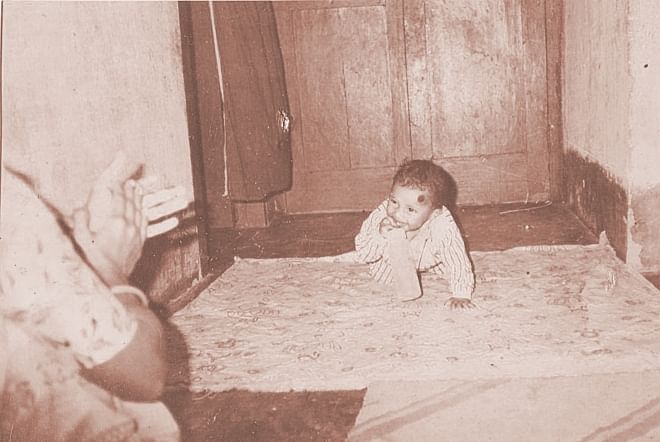A long wait for justice
A long wait for justice

The news that the verdict would finally be delivered on July 22 (today) made her speechless. There's now a ray of hope that she might see justice done for a crime that had taken the life of her two-and-a-half-year-old son more than two decades ago.
Exhausted by the wait that took almost half of her 57 years of life, Laily Begum struggled to remember if she had a photograph of her son.
“No,” she said unmindfully.
But moments later, her forehead creased in wrinkles. She left for her second-floor flat in the four-storey government quarters, requesting this correspondent to wait downstairs.
She came back 20 minutes later with a photograph, taken a year and a half before adulterated drugs had killed her son Mohammad Rajib.
“You understand what it means to me, don't you? This is all I have left of my son. Please don't forget to bring it back to me,” pleaded Laily, the mother of one among 2,700 children who perished between 1980 and 1992, for taking paracetamol syrup poisoned with the toxic chemical diethylene glycol.
Laily took a trip down memory lane to the day when the photo was taken. All the family members had lined up that day in front of the camera her expatriate brother-in-law had brought.
The pair of hands in bangles, clapping, seen in a corner of the photo, was Laily's, encouraging her baby boy to smile as he crawled holding a feeder on a floor mat.
“He was looking so cute that his uncle could not help taking a snap of him,” recollected Laily.
Kawsar Islam Rakib, 17, was standing by his mother Laily as she was talking to The Daily Star.
Breaking the silence he said, “I could not but vent my hatred when I learned about the horrific act. Only the state is to blame for this.”
At this point, 31-year-old Mohammad Mohiuddin joined the discussion.
Mohiuddin's younger brother Masud was among 10 children who had died at the same time after being given the paracetamol syrup distributed at the health facility set up for employees working at Bangabhaban, the President's office.
Masud had just learned to walk then.
Their father Mohammad Hadis was the house laskar of the president, while Rajib's father Abdul Qader was the president's cook.
It was more painful for their neighbour. Their baby daughter Saima was given the syrup after Masud was hospitalised. They did not know that the syrup meant for curing them was actually poisoned.
When Masud died, they had to go through the agonising wait for their daughter's turn.
Saima began having urine-related difficulties soon after having the paracetamol syrup. She was admitted to Dhaka Shishu Hospital where she died of kidney failure like the other victims.
“What a pretty girl she was! The disease for which these unfortunate babies had to take that medicine was nothing but seasonal fever,” Mohiuddin said.
Another family left the Bangabhaban staff quarters for some unknown place after the retirement of its bread earner. That family had lost a boy and a girl in one week.
Soon after the interviews of the parents were taken, the father of another one-and-a-half-year old victim rang up this correspondent.
“My dear son, please don't cause the father, who has endured such an irreparable loss, more trouble. Please don't disclose my identity. I am just a servant of the president.
“Don't you think I would have seen justice long ago had the state's guardian [the President] cared for us at all?”